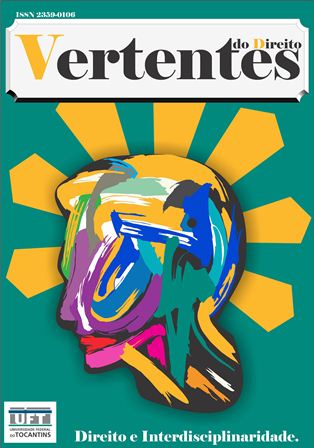PRINCÍPIO DA PROTEÇÃO E REFORMA TRABALHISTA:REPERCUSSÕES DA LEI 13.467/2017 NO EQUILÍBRIO DAS RELAÇÕES LABORAIS
DOI:
https://doi.org/10.20873/uft.2359-0106.2019.v6n1.p260-278Keywords:
Reforma trabalhista, Princípios trabalhistas, Princípio da proteção, Direito do TrabalhoAbstract
The principles are guidelines for the interpretation and integration of the entire legal system. In labor law, the principle of protection is listed as the most important, considered as the very raison of this branch, reflecting on all others. The labor reform brought by law 13467/2017 altered numerous provisions of the Consolidation of Labor Laws, leading to speculation about the withdrawal of worker protection. The purpose of this paper is to analyze the impact of Law 13.467/2017 on labor principles, notably on the principle of protection, and to verify if the application of labor law is still possible to balance the sides of the legal relationship between employer and employee. To that end, a revision of the content of the protection principle was made, both in individual and collective labor law, and the legislative changes that affected it were pointed out. In the end, a constitutional reading of the principle was made. The research is bibliographical and relied on sources of labor law and constitutional law. It was concluded that, in spite of the flexibility introduced by the new law, the principle of protection and the rest derived from it are not extinguished from the legal system, since they are based on the greater constitutional principle of the dignity of the human person, in the light of which they must be interpreted and applied.
Downloads
Published
How to Cite
Issue
Section
License
Os trabalhos aprovados para publicação tornar-se-ão propriedade da Revista sem qualquer ônus para a mesma. A Equipe Editorial se reserva o direito de promover as adequações necessárias para publicação.
O conteúdo dos trabalhos publicados na Revista Jurídica eletrônica Vertentes do Direito - inclusive quanto à sua veracidade, exatidão e atualização das informações e métodos de pesquisa - é de responsabilidade exclusiva dos autores. As opiniões e conclusões expressas não representam posições da Revista nem da Universidade Federal do Tocantins.
















